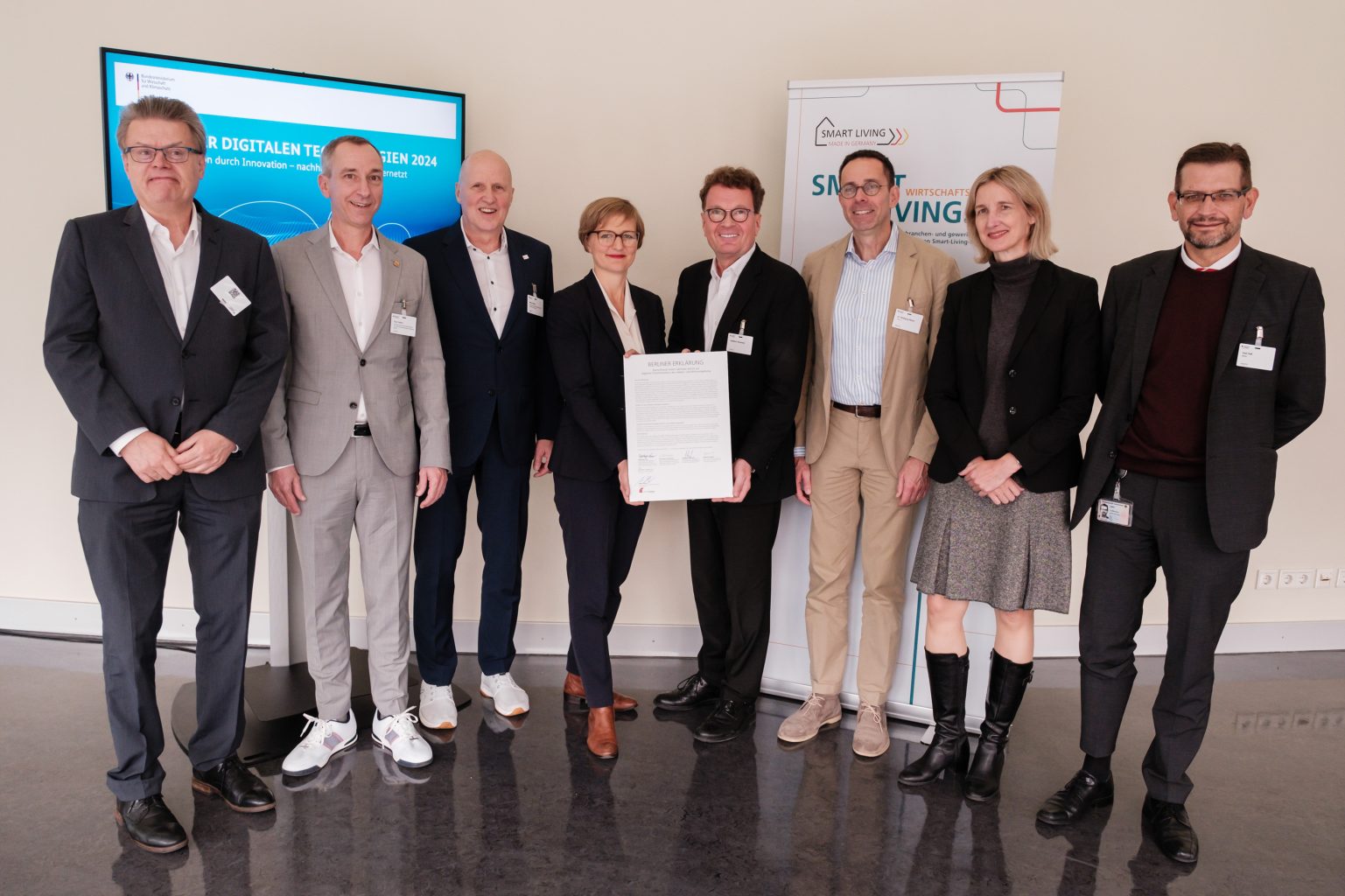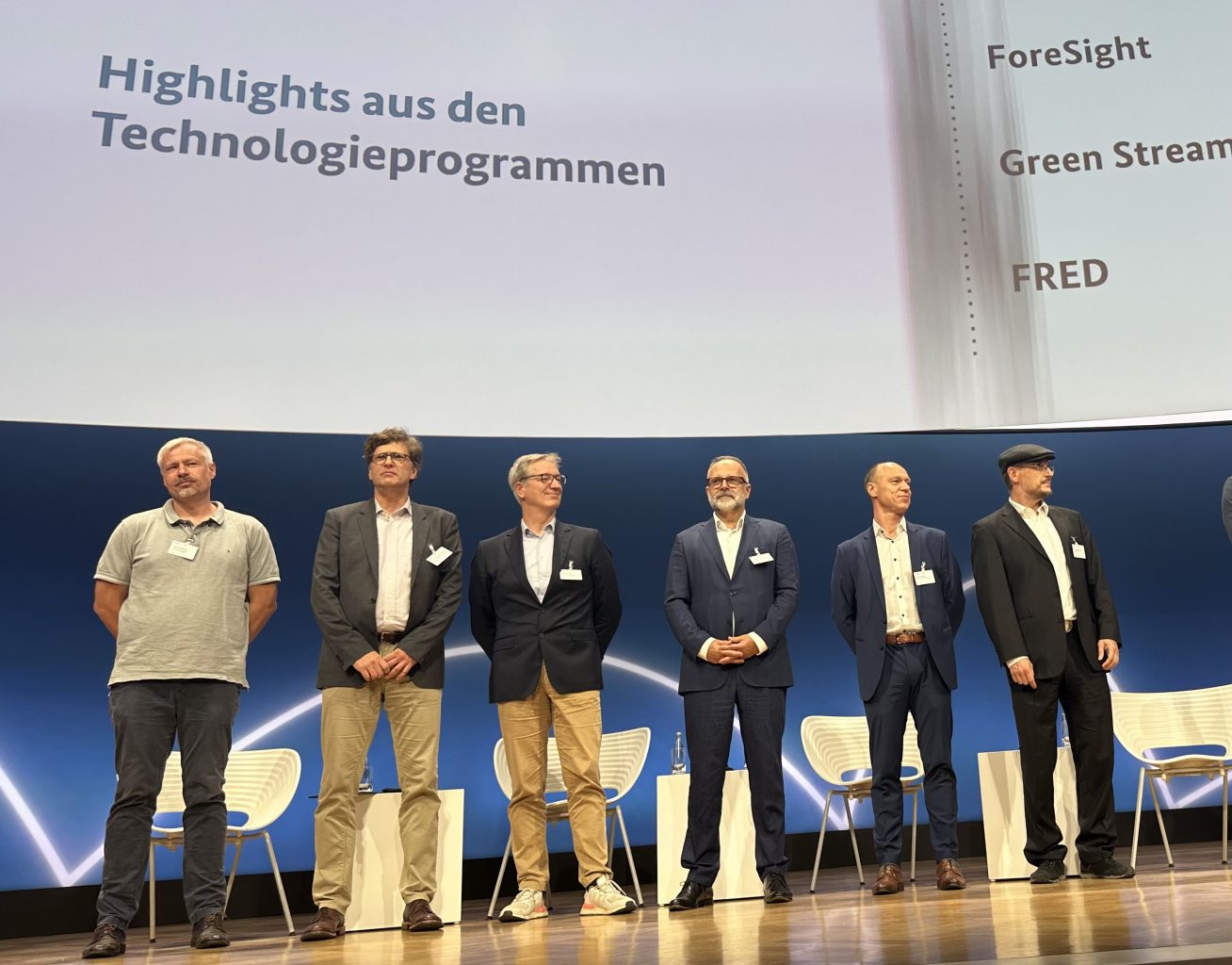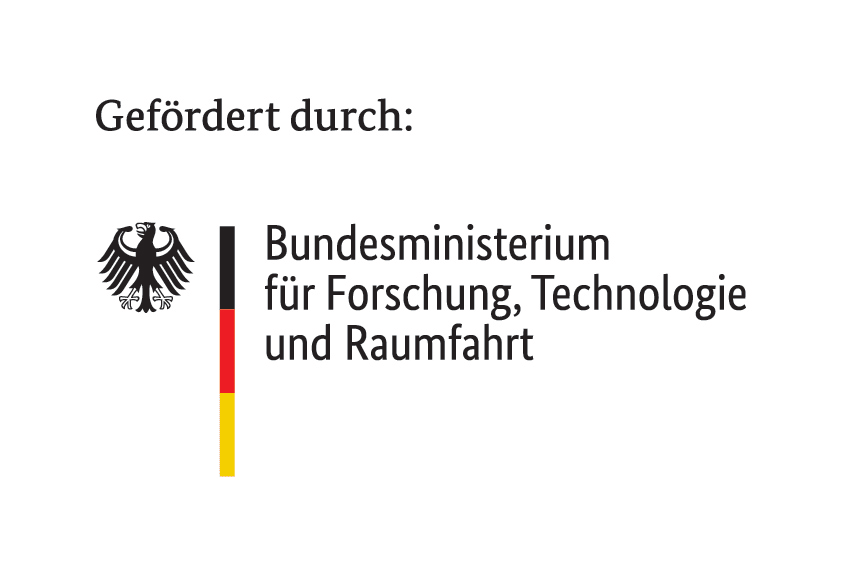8. October 2024
Complete digitalization of residential buildings through shared data rooms: new growth impetus for the smart living market
Berlin, 8 October 2024 – At the Digital Technologies Days, representatives from industry, the housing sector, science and trade, who have joined forces in the Smart Living e.V. business initiative, among others, signed a joint declaration paving the way for the innovative, complete and AI-enabled digitalization of residential buildings. This should provide decisive growth impetus for the smart living market in Germany and Europe. The SmartLivingNEXT technology program funded by the Federal Ministry for Economic Affairs and Climate Protection (German Federal Ministry for Economic Affairs and Climate Action (BMWK)) creates the conditions for this. This gives German companies and start-ups the opportunity to secure a decisive technological advantage in global competition.

The core element of the technological concept is a shared data room that allows digital smart living applications to be developed and operated more easily and cost-effectively than before. This is due in particular to the fact that the data room creates a standardized access point to all building-relevant data for the first time. This enables the housing industry, software developers, the skilled trades and private users to connect digitally. They are then able to receive authorized data that is required for their respective application. This allows different systems and the data they generate, such as energy consumption, appliance or other sensor data, to be combined in new ways and also used in anonymized form to train corresponding AI-based applications. This makes many new applications conceivable, for example in the areas of energy monitoring, assistance and care, home security or housing management and building maintenance.

The special feature of the technological concept is that it uses standardized semantics to describe all data. This means that it works independently of the manufacturer-specific hardware components installed or used. In addition, the data can remain in its original system and can therefore only be retrieved and combined to the extent required for the respective application. Those who provide data thus retain complete control over who can access the data and for what purpose. The concept of the data room is therefore secure and complies with the EU Data Act. The basic principles of Gaia-X have been taken into account.
“With SmartLivingNEXT, Germany is taking on a special pioneering role in the digitalization of residential buildings. The introduction of SmartLivingNEXT marks a milestone in the development of the smart living ecosystem realized according to European values. Thanks to non-discriminatory and secure access to data, the technology reduces dependence on market-dominating companies from non-European countries and thus creates the conditions for keeping value creation in Germany,” explains Michael Schidlack, Principal Researcher at the Research Association for Electrical Engineering (FE) at ZVEI e. V. and consortium leader in SmartLivingNEXT flagship project. “In the coming years, we expect numerous new, innovative applications based on SmartLivingNEXT that will make our living and home environments more sustainable. This will make it easier for software companies to create smart applications in the future and use them across buildings.” The housing industry will receive a growing range of digital applications for efficient housing management, while citizens will receive new, intelligent services that will make the homes of the future more energy-efficient, safer and more comfortable.
The first buildings have now been connected to the technology program’s shared data space, the SmartLivingNEXT Dataspace, as an example. The first applications have already been demonstrated at the Digital Technologies Days.
About the SmartLivingNEXT technology program:
With the technology program “SmartLivingNEXT – Artificial Intelligence for Sustainable Living and Living Environments”, the Federal Ministry for Economic Affairs and Climate Protection (German Federal Ministry for Economic Affairs and Climate Action (BMWK)) supports research and development projects that relate to specific, practical smart living applications. The aim is to develop and establish a universal, AI-based ecosystem for digital smart living services. The intended developments and solutions will be based on the existing results of German Federal Ministry for Economic Affairs and Climate Action (BMWK) -funded and other projects. The technology program focuses on the flagship project “ForeSightNEXT – Platform for Data, Artificial Intelligence and Services in a Smart Living Ecosystem”.
The program is supplemented by six so-called satellite projects, whose task is to implement and test their own applications as prototypes. Among other things, flagship project provides the reference architecture, the toolbox and the dataspace. For their part, the satellite projects are to contribute new components and services to the platform in order to expand the application possibilities of other partners. The German Federal Ministry for Economic Affairs and Climate Action (BMWK) is funding the technology program over three years with a total of around 25 million euros.
The Research Association for Electrical Engineering at ZVEI e. V. is the consortium leader of the SmartLivingNEXT flagship project. The technology program currently includes 65 consortium and associated partners.
Category:
BIM-4-CARE
Flagship project
SmartLivingNEXT
Stay informed about the latest developments around SmartLivingNEXT:
